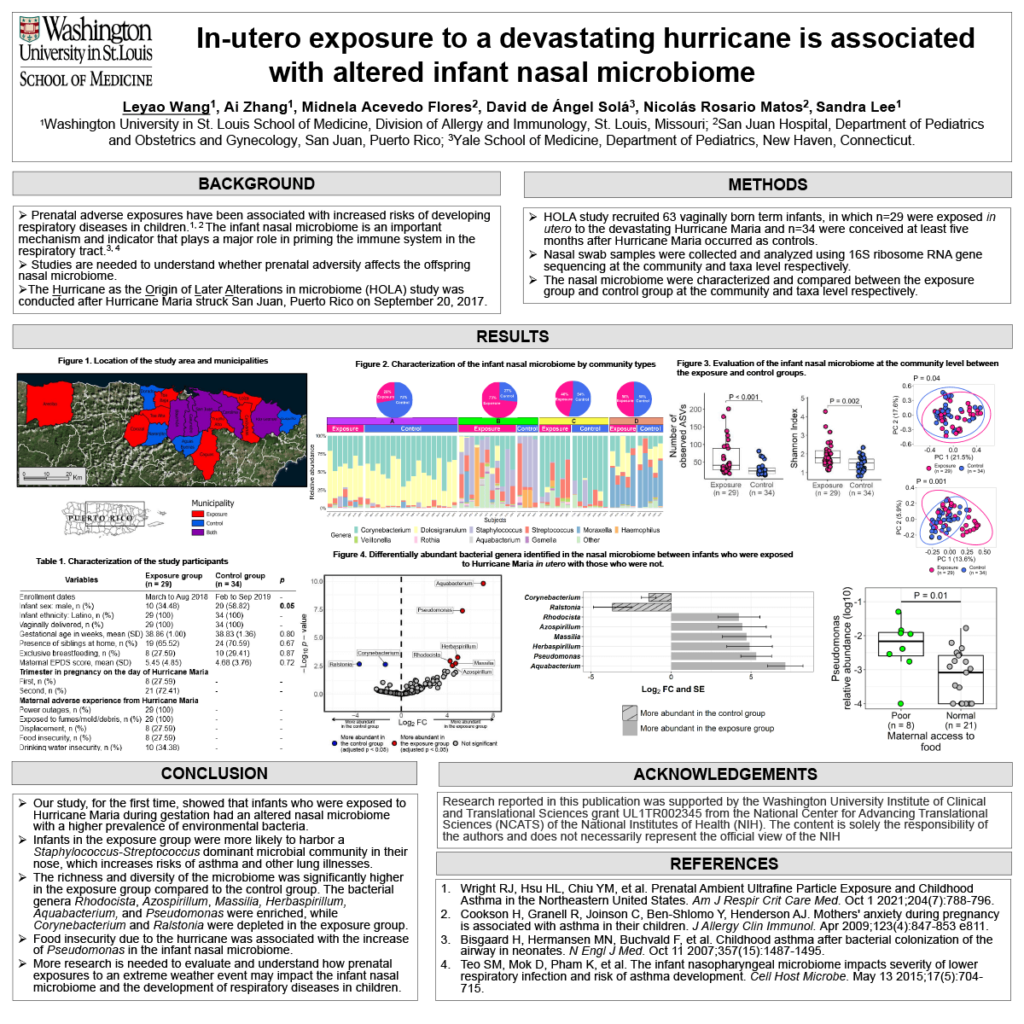Introduction: Prenatal maternal exposures to environmental or psychological stressors increase the risks for developing respiratory diseases, including wheezing and asthma, in children. With the increasing frequency and intensity of extreme weather events worldwide, which poses dramatic environmental and psychological burdens in affected regions, it is essential to evaluate the risks of developing respiratory diseases among children who are exposed in utero to devastating climate events. The infant nasal microbiome is an important mechanism and indicator of infant respiratory health.
Methods: We examined the impact of maternal prenatal exposures to a devastating hurricane on the offspring’s nasal microbiome, leveraging the natural experiment of Hurricane Maria (September 2017 in Puerto Rico). We recruited 63 vaginally born infants, in which n=29 were exposed in utero to this devastating hurricane, and n=34 were conceived at least five months after the Hurricane as controls. Nasal swab samples were collected and analyzed using 16S ribosomal RNA gene sequencing at the community and taxa level respectively.
Results: Infants in the exposure group were more likely to harbor a Staphylococcus-Streptococcus dominant microbial community in the nose, which indicated an increased risk of developing wheezing and asthma. The richness and diversity of the microbiome was significantly higher in the exposure group compared to the control group. The bacterial genera Rhodocista, Azospirillum, Massilia, Herbaspirillum, Aquabacterium, and Pseudomonas were enriched, while Corynebacterium and Ralstonia were depleted in the exposure group. Food insecurity due to the hurricane was associated with the increase of Pseudomonas in the infant nasal microbiome.
Impact: Our study, for the first time, showed that infants who were exposed to Hurricane Maria during gestation had an altered nasal microbiome with a higher prevalence of environmental bacteria. More research is needed to evaluate and understand how prenatal exposures to an extreme weather event may impact the infant nasal microbiome and the development of respiratory diseases in children.
Organization – Washington University in St. Louis
Wang L, Rosario N, Zhang A, Cao L
